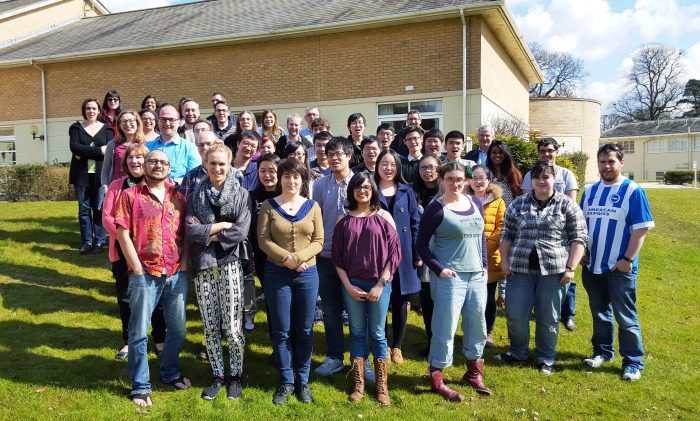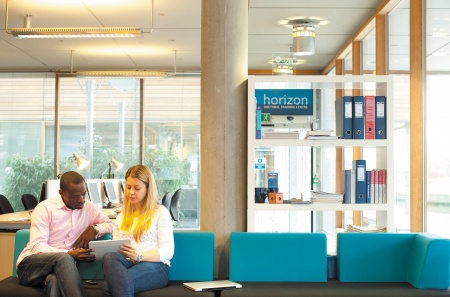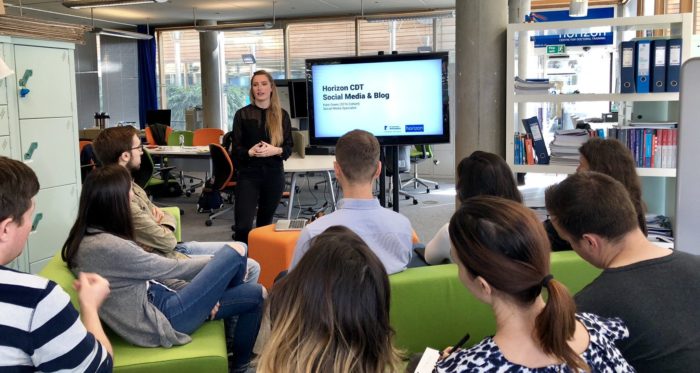
Horizon adopts a radical approach to training that combines taught elements with industry engagement and practice-led research in a highly flexible manner.
Under the guidance of a personal mentor, each student will undertake a journey from an initially narrow disciplinary focus to a point where they are fully equipped for a career within industry or academia. This will involve developing transdisciplinary skills as well as transferable skills in research, innovation and appreciation of societal impact.
Our Centre for Doctoral Training Programme comprises three core elements: a taught programme, a placement and the research programme. The balance between the different elements evolves over time, but as an indication, the 2022 cohort are undertaking:

At the heart of the PhD will be an interdisciplinary research project. This will be grounded in a user-centred approach through the close involvement of industry partners. Each student will be guided by at least two supervisors from different disciplines.
PhD research topics will be chosen during the first year of the programme, drawing on ideas and discussions involving the students, potential supervisors and external partners. This said, the following list offers a few illustrative research topics from previous cohorts that would fall under the overarching agenda of the centre:

Our students have access to a wide variety of research facilities, established using over £4M of equipment funding over the past five years. These include a wireless applications test-bed across the city of Nottingham, a Galileo positioning test-bed that is part of the newly-funded GRACE centre, a collection of mobile devices and server infrastructure within the Mixed Reality Laboratory, and a series of vehicle simulators (car, train and motorcycle) within Engineering.
Our taught programme addresses interdisciplinary and transferable skills in the following areas:
Ubiquitous technologies: underlying manufacturing, medical, infrastructure, creative, business analytics, transportation, navigation, positioning, interface and advanced computing technologies.
Human-centred design: user-centred design methods including requirements elicitation and evaluation techniques.
Innovation and entrepreneurship: interactions between different stakeholders when developing technology for the digital economy and innovative approaches to knowledge transfer.
Societal issues and policy: issues of privacy, anonymity, identity and risk in the context of policy, intellectual property and economic and social systems.
Research methods and tools: core skills essential for PhD study including industrial and conference presentations and research management skills.
Training projects: integrated experience of analysis and synthesis of literature, self-directed study, applications of ubiquitous technology to innovative designs, and working within multi-disciplinary teams.

Each student will construct and follow their own personal pathway through these themes that enables them to develop from their own individual starting point into a rounded interdisciplinary researcher.
We recognise that PhD students are highly able individuals who have already successfully passed through at least one degree programme and who are therefore very capable of self-directed study. Moreover, we appreciate that many students will be eager to push on with research-focused practical activities from the beginning of their programme. We will therefore tailor and mix different modes of delivery to suit the capabilities and motivations of talented PhD students including: day or half-day seminars with significant student-led presentation and discussion; short-fat modules delivered in blocks; a summer school; and extensive research and practice-based activities including a feasibility project and the preparation of a PhD proposal.